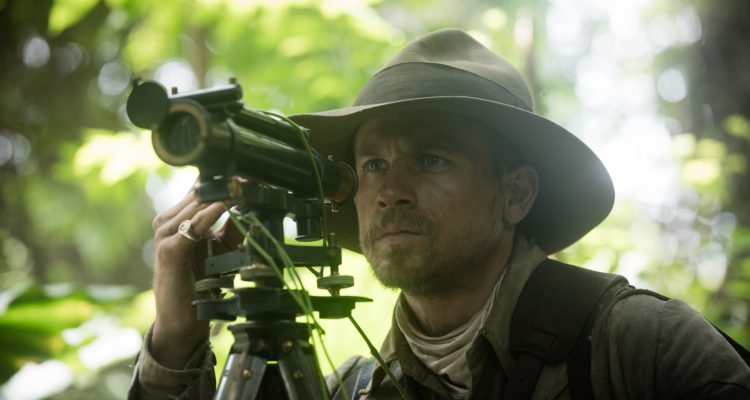On shooting on 35mm film
“It’s a very easy answer,” Gray began, before answering the question in a sentence that had the crowd erupting in laughter: “35 millimeter is better.
“First of all, I’ve never shot digital, so I’m not the right person to talk about this with… at a certain point you think to yourself that the audience does not see how easy it is for you. Congratulations, it’s easy, we can see what we’re getting, but it’s not better for [the audience]. Better for you is to watch the end result. No picture ever said, ‘shot on digital, so excuse the fact that it’s a little crappy because it’s easier for the filmmaker.’ ”

On Werner Herzog
“I want to make it very clear that I think Herzog is a truly great director and I think [‘Aguirre, The Wrath Of God‘ and ‘Fitzcarraldo‘] are brilliant, but I wasn’t interested in exploring what Herzog did. I don’t think the movies are about the same thing. In the end, it’s not my job to revisit or do constant homage. I have to, whether I fail or not, take what is already existing, and try to take it a step further or in another direction. Starting very simply, there’s no women of any consequence in any Herzog films,” Gray said.
He goes on about differences between his film and those by other filmmakers who have traversed similar heart-of-darkness territory: “Knowing that the means of production are going to justify the aesthetic to some degree, I wanted to explore the idea that every character matters in the film, and that extends of course to the indigenous characters as well. If the movie is about a blond-haired Aryan guy, at least I can justify the indigenous people as having their own humanity — a life that is not dependent on ours. I was trying to distinguish the film in that way from those great filmmakers, because that is the area that I can explore without the limitations of lack of talent or time or whatever else.”
On distribution with Amazon Studios and the future of the medium
“I have an excellent relationship with Amazon. It started when I needed paper towels…” Gray began, as the audience, for the ump-teenth time of the day, erupted into applause and laughter. “It extended to books and everything else. They’re an excellent supplier of eggs, I’ve found, and now, cinema.
“I think they’re great so far. The real, honest truthful answer is that I think it reflects a war on the system. I don’t think that this film is so inaccessible that it should be made outside the system. This is the kind of movie that you would think studios would be making. But they don’t. They make superhero [movies]. That’s what they’re doing now. There’s nothing wrong with that, but what is wrong with it is that it’s the only thing that they’re making,” Gray said. “They’re so risk-averse that there’s nothing you can possibly do now without that system that has any interesting aspect at all. All of my friends who are directors are not making films within studios; none of us are making movies that start with studios. We all start making films with our own money, and the studio either acquires it or, in my case, buries it.

“I think it reflects a changing world with the movies. It’s a sadness. Truffaut said ‘great cinema is part truth, part spectacle.’ So what you have when you have a disappearing middle is that you have a lot of spectacle with no truth, and you have movies made for $4 with all truth and no spectacle. That middle — which was very beautiful, which was Alfred Hitchcock’s world, which was John Ford’s world, which actually was Orson Welles’ world when he did ‘Citizen Kane‘ — is gone. That’s a sadness, isn’t it? So hopefully Amazon will fill that role,” Gray continued.
He rejected the line of applause that his previous remark received: “That’s not just an applause line, either. It’s a cultural treasure that the United States had. This thing about the cinema, the studio system — something is lost. The history of film is very weird; for centuries, there was no cinema or human existence, so sound cinema has only been out since 1927. You’re talking a very short period of time, and look at how many great films were made in the first 30, 40 years of cinema’s existence. It’s like the movies were meant to be. They’re in us.
“I love Wagner’s operas, something that has endeared me greatly to my elder Jewish relatives. And when you see ‘The Ring [Of The Nibelung],’ it feels like Wagner was reaching for something past the opera. I know that Wagner would have been a movie director — and probably a great one. The human race needed cinema, and now we have it and I’m worried about it. It’s been a very short period,” Gray added.
“The Lost City of Z” opens on April 21, 2017.


